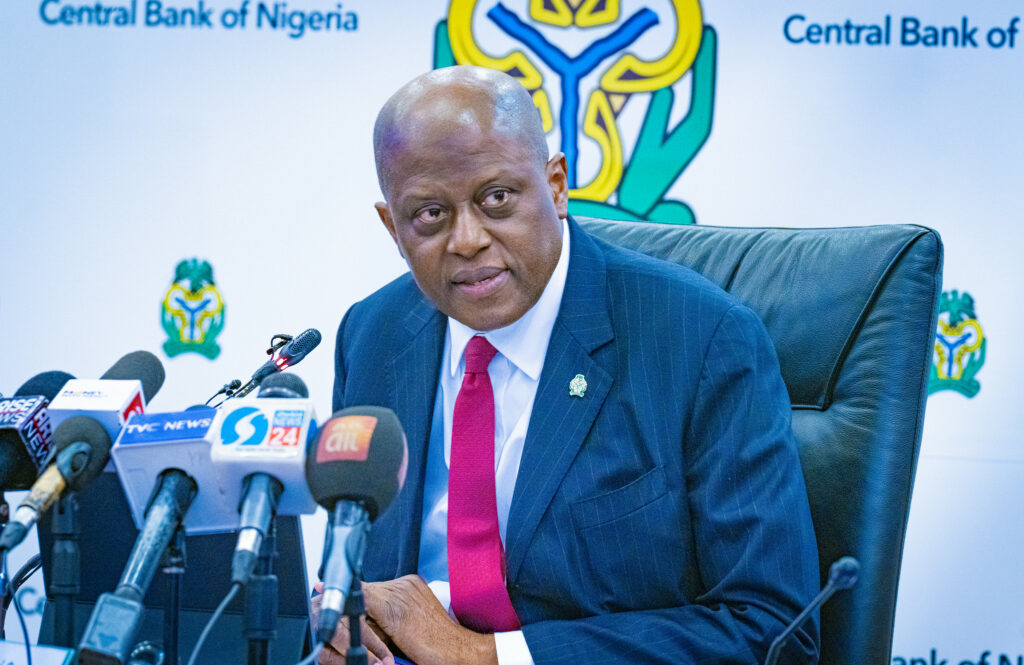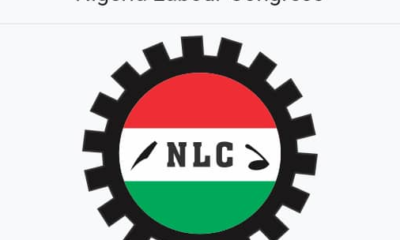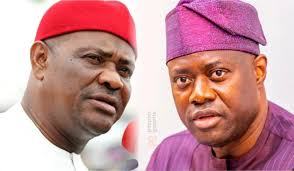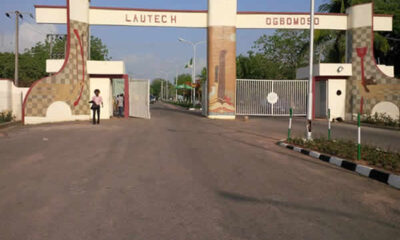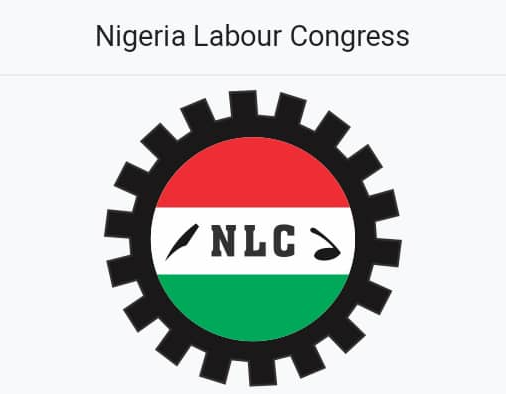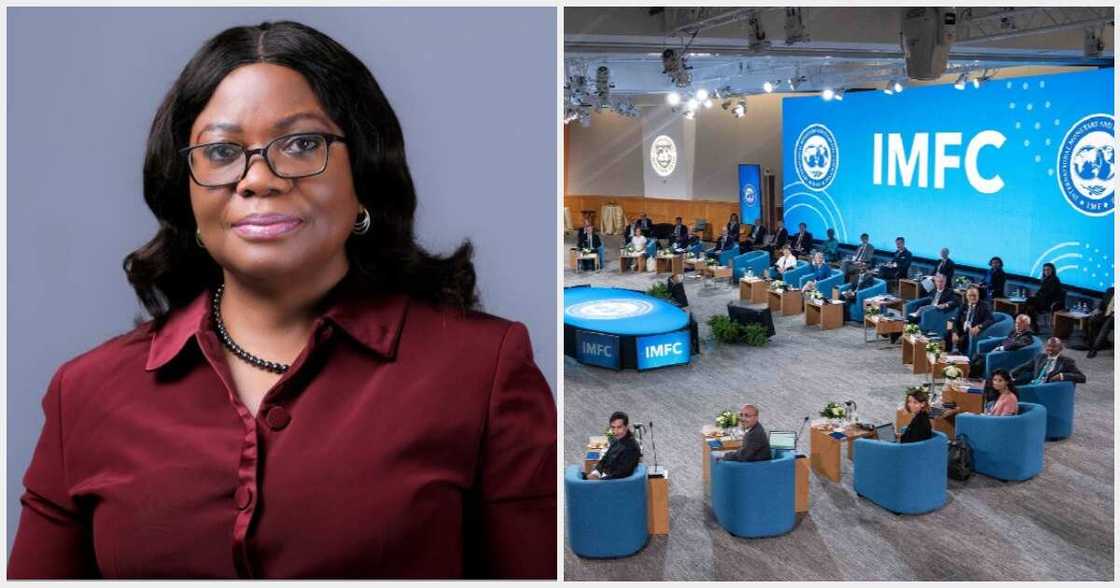The executive order issued by President Bola Tinubu stopping the deduction of management fees and the Frontier Exploration Fund by the Nigerian National Petroleum Company Limited has effectively halted revenue streams that generated about N2.076tn in four years, investigations by The PUNCH have shown.
An analysis of monthly earnings submitted to the Federation Account Allocation Committee and obtained by our correspondent in Abuja on Wednesday revealed that the national oil company received N20.739bn from the deductions in 2022, N695.9bn in 2023, N452.6bn in 2024, and N906.91bn in 2025, bringing the total to about N2.1tn between 2022 and 2025.
This development followed the President’s directive that all revenues due to the federation must be remitted in full, without prior deductions, in line with constitutional fiscal provisions and transparency reforms in the oil and gas sector.
The order, which prioritises constitutional fiscal provisions governing the Federation Account over certain operational funding arrangements under the Petroleum Industry Act, specifically halts automatic deductions such as management fees and contributions to the Frontier Exploration Fund from oil and gas revenues before remittance, insisting that all earnings must first be paid into the Federation Account in line with the Constitution.
The move has sparked varying reactions. State governments and fiscal transparency advocates have welcomed the order, saying it will boost distributable revenues, strengthen accountability, and address longstanding concerns about opaque deductions.
However, industry players and legal analysts warn that the order could create tensions between statutory provisions of the Petroleum Industry Act and constitutional fiscal rules, potentially leading to policy uncertainty.
They argue that frontier exploration and joint venture funding mechanisms were designed to support reserve growth and operational efficiency, and caution that abrupt changes could slow investments and affect production if alternative funding models are not provided.
Labour groups, including the Petroleum and Natural Gas Senior Staff Association of Nigeria, have called for clarity on the implementation framework, insisting that reforms must not disrupt production or job security. They also urged the government to design a transparent funding mechanism for critical industry projects while ensuring strict oversight of remittances.
Overall, stakeholders agree that the success of the executive order will depend on transparency, disciplined implementation, and the ability of the government to balance fiscal reforms with sustained oil and gas investment.
A presidential implementation committee has been directed to oversee and coordinate the effective implementation of the new directive on oil and gas revenue remittance.
Further analysis of the four-year trend showed sharp fluctuations in the deductions retained by the NNPC. In 2022, the company received N20.739bn from management fees, frontier funds, and services-related deductions. This rose to N695.9bn in 2023, representing an increase of N675.161bn or an extraordinary 3,255.4 per cent year-on-year growth, reflecting a major expansion in retained earnings.
However, in 2024, the amount dropped significantly to N452.6bn, representing a decline of N243.3bn compared to 2023, a sharp 34.96 per cent decrease. The downward trend was reversed in 2025 when deductions surged to N906.91bn, an increase of N454.31bn over 2024, translating to a dramatic 100.37 per cent year-on-year increase.
Comparing 2025 with 2022, the retained deductions rose by N886.171bn, representing a cumulative increase of about 4,271.6 per cent over the period and a total of N2.1tn.
The data underscored not only the scale of the deductions but also the volatility in annual retention levels, a factor that has intensified debate over the recent executive directive mandating full remittance of oil and gas revenues to the Federation Account before any operational charges.
Monthly data indicated that the deductions consistently reduced distributable profits to the federation. In 2022, the NNPC received N14.323bn from frontier exploration services but recorded a deficit of N36.15bn, N3.21bn as management fees, and another N3.21bn from frontier funds.
A month-on-month analysis of 2023 earnings showed that in January 2023, NNPC retained N29.30bn. This declined in February to N25.66bn, reflecting a 12.42 per cent month-on-month drop. In March, earnings rose sharply to N44.78bn, marking a 74.49 per cent increase over February.
In April, deductions fell to N32.74bn, a 26.88 per cent decrease from March. In May, retained earnings climbed to N38.99bn, representing a 19.09 per cent increase. By June, deductions surged to N63.72bn, a 63.43 per cent jump, the strongest growth recorded in the first half of the year.
However, in July, earnings dropped to N47.38bn, a 25.64 per cent decline. In August, they fell further to N38.11bn, indicating a 19.57 per cent decrease. The trend reversed in September, with deductions rising to N48.44bn, a 27.11 per cent increase.
In October, retained earnings dipped slightly to N46.17bn, a 4.69 per cent decline. A dramatic spike occurred in November, when deductions soared to N110.996bn, a 140.41 per cent increase over October, reflecting a sharp jump in total profit for the month.
The upward trajectory continued into December, when N169.63bn was retained, representing a further 52.82 per cent increase compared to November, the highest monthly figure recorded in 2023.
Overall, while the percentage split remained structurally constant at approximately 60 per cent of profit, the actual value of earnings retained by NNPC fluctuated widely, with month-on-month movements ranging from a 26.88 per cent decline to a 140.41 per cent surge, underscoring the volatility in oil sector revenues during the year.
Similarly, in 2024, deductions persisted despite fluctuating oil earnings. In September 2024, N35.17bn was removed under each category, with the federation receiving N46.9bn out of N117.24bn profit. In November, N47.9bn was deducted under each category, leaving N63.87bn for distribution.
In January 2024, NNPC retained N14.67bn. This surged in February to N46.022bn, representing a 213.7 per cent increase month-on-month. However, the figure dropped significantly in March to N12.342bn, marking a 73.2 per cent decline compared to February.
In April, retained earnings rebounded to N24.028bn, reflecting a 94.7 per cent increase. The amount declined again in May to N12.524bn, a 47.9 per cent decrease, and further dropped in June to N11.64bn, representing a 7.1 per cent fall.
In July, earnings edged up to N12.342bn, a 6.0 per cent increase over June. However, they plunged in August to N5.36bn, translating to a 56.6 per cent decline.
A sharp spike was recorded in September, when deductions rose dramatically to N70.346bn, representing a 1,211.7 per cent increase from August, the highest monthly growth rate for the year. In October, earnings declined to N61.108bn, a 13.1 per cent drop, before rising again in November to N95.808bn, marking a 56.8 per cent increase.
The trend reversed in December, when retained earnings fell sharply to N44.504bn, reflecting a 53.6 per cent decline compared to November. Overall, the data highlighted extreme volatility in NNPC’s retained earnings in 2024, with month-on-month changes ranging from a 73.2 per cent contraction to a 1,211.7 per cent surge during the year.
Findings further indicated that NNPC may lose about N906.91bn in management fees and Frontier Exploration Fund deductions. Each of the funds accounted for N453.455bn in 2025. A breakdown showed that the N453.455bn realised for frontier exploration fell short of the N710.520bn budgeted for the year, leaving a deficit of N257.066bn.
The monthly trend reveals the volatility of the fund. In January, N31.77bn was deducted from the frontier line when PSC profits came in at N105.91bn. The February deduction rose to N38.30bn from a profit of N127.67bn, representing a 20.6 per cent increase on the January inflow.
March provided the first big surge, with N61.49bn allocated to frontier exploration from profits of N204.96bn, a jump of 60.5 per cent on February’s figure. April, however, saw deductions ease back to N36.58bn as profits slid to N121.93bn, a 40.5 per cent drop compared with March.
In May, the fund received N38.8bn, only slightly higher than April’s contribution, reflecting profits of N129.33bn. June delivered the lowest allocation so far this year, just N6.83bn, after profits collapsed to N22.77bn. That represented an 82.4 per cent fall from May.
The flow recovered somewhat in July, with N25.34bn transferred into the fund from profits of N84.48bn. In August, the trend rose sharply to its highest level so far this year, as production sharing contract earnings surged to N263.13bn. This translated to N78.94bn remitted to the Frontier Exploration Fund, more than three times the July contribution and about twelve times the amount recorded in June.
The momentum was sustained in subsequent months. In September, PSC profit stood at N275.38bn, with N82.61bn deducted for frontier exploration. October recorded a sharp decline, as profit dropped to N36.82bn, while deductions amounted to N11.05bn.
In November, profit rebounded to N112.32bn, with N33.70bn transferred to the fund. However, by December, PSC earnings moderated again to N26.82bn, resulting in frontier exploration deductions of N8.05bn.
The same 30 per cent rule also applied to NNPC’s management fees, which mirrored the frontier deductions exactly.
In January, NNPC booked N31.77bn; in February, N38.30bn; in March, N61.49bn; in April, N36.58bn; in May, N38.8bn; in June, N6.83bn; in July, N25.34bn; in August, N78.94bn; N82.614bn in September; N11.046bn in October; N33.695bn in November; and N8.046bn in December.
Energy experts claim that the new order would significantly alter the structure of oil revenue flows. According to them, if the deductions had been suspended earlier, the federation could have received the full N2.1tn over the period, strengthening fiscal buffers and infrastructure funding.
The President’s directive, which took effect immediately, mandates the NNPC to remit gross revenues and seek approval for legitimate operational expenses through the budgetary process.
Any breach of the directive, according to the document, would be treated as a violation of a lawful executive order and constitutional fiscal provisions.
The policy has drawn mixed reactions from stakeholders. While state governments and some economists welcomed the move as a step towards transparency, industry operators cautioned that cutting the funding stream for frontier exploration could affect long-term oil and gas development.
An NNPC source had earlier narrated how the directive could affect the long-term reform trajectory of the NNPCL, especially as conversations around its potential listing on the stock exchange continue.
The senior official warned that the new directive could significantly disrupt ongoing production sharing contract operations, affect staff deployment, and send negative signals to investors, particularly in the deepwater segment of Nigeria’s oil and gas industry.
This official, who spoke on condition of anonymity because he was not authorised to speak publicly, said the order could weaken the company’s operational oversight over production sharing contracts and affect hundreds of personnel dedicated to such activities.
According to him, no fewer than 400 to 500 staff are dedicated daily to overseeing and managing PSC operations, including monitoring production, reviewing costs and ensuring compliance across various deepwater assets.
He said, “It would affect us to a great extent because we have staff who are dedicated to these lines of activities. We have no fewer than 400 to 500 staff whose daily work is focused on production sharing contracts. These are professionals working on rigs, platforms, seismic operations and cost monitoring. We are talking about personnel across 39 PSC sites, out of which 14 are producing, and about five major sites contribute nearly 80 per cent of output under these arrangements.”
According to him, the directive could disrupt the monitoring framework that ensures cost efficiency and transparency in deepwater operations.
“It would impact us negatively. That is the truth. It is an extremely bad situation and not well thought out. I personally believe that the president was wrongly advised. The Petroleum Industry Act was crafted with deepwater assets development in mind. The idea was to create enabling laws that would attract investors. But this order is already sending a wrong signal to prospective investors. It shows that with just an executive order, a law can be changed overnight without a single debate.
“The new order says royalties and taxes should be remitted to the Federation Account Allocation Committee. But that is a wrong impression that has to be corrected. These monies are already being remitted to FAAC. But the point is that royalties are lifted as barrels and not given to you as cash. That is the way the commercial contracts governing this arrangement are designed. Deepwater assets are governed by production sharing contracts.
“And that means we are sharing production, not cash; barrels of oil, cubic metres of gas. Each party is expected to sell its barrels and get cash. So the crude oil that represents royalties and tax, the agreement signed between NNPC and international oil companies gives the right to take the barrels, sell them and remit the money to FAAC. That is the clear situation of things and it is what has been happening since 2022 after the PIA was signed in August 2021,” he asserted.
The official explained that under existing commercial arrangements, royalties and taxes from PSC operations are remitted to the Federation Account through crude oil lifting rather than direct cash payments.
“These monies are already remitted to FAAC. But the issue is that royalties are lifted as barrels and not given as cash. Deepwater operations are governed by production sharing contracts. We are sharing production, not cash. Each party sells its share and remits the proceeds. That is the arrangement that has been in place since the implementation of the Petroleum Industry Act in 2021,” he added.
He warned that any attempt to change the process could create confusion and operational gaps.
“By the language used in the order, it appears there is an assumption that royalties and taxes are paid in cash. They are not. If this is changed, it means international oil companies would sell government crude and remit directly. That is practically impossible. NNPC represents the government as concessionaire because a sovereign nation cannot enter commercial agreements directly. Our role is to midwife the process from seismic to production and ensure that costs are properly verified,” he said.
The source further expressed concerns about the implications for financing and existing obligations tied to crude-backed loans.
“Some of the production barrels are already tied to loan repayments. The current administration secured about $3.175bn in 2023 with crude as collateral. There are monthly remittance schedules to lenders covering both principal and interest. If all revenues are redirected without clarity, who will meet those obligations? This raises questions for lenders and could affect our ability to raise future capital for major projects,” he said.
He added that the directive could weaken investor confidence in Nigeria’s regulatory and fiscal stability.
“If investors see that agreements can be disrupted by policy shifts, they will hesitate. We are currently pursuing at least three deepwater developments. Some investors are already asking whether this signals instability in policy. This order could send the wrong message to the international community,” he stated.
The Frontier Exploration Fund was created under the Petroleum Industry Act to support hydrocarbon exploration in frontier basins such as the Chad, Sokoto, Anambra and Benue troughs, as part of efforts to boost reserves and attract investment.
Supporters of the directive, however, argued that frontier exploration should be funded through the national budget or private investment, rather than through automatic deductions from federation revenues.
Perspectives from other industry players warned that the transition must be carefully managed to avoid disruptions to ongoing joint venture operations and exploration activities.
They urged the Federal Government to design a transparent funding model for strategic projects while ensuring that operational efficiency and production growth are not compromised.
punch.ng
FOLLOW US ON:
FACEBOOK
TWITTER
PINTEREST
TIKTOK
YOUTUBE
LINKEDIN
TUMBLR
INSTAGRAM

